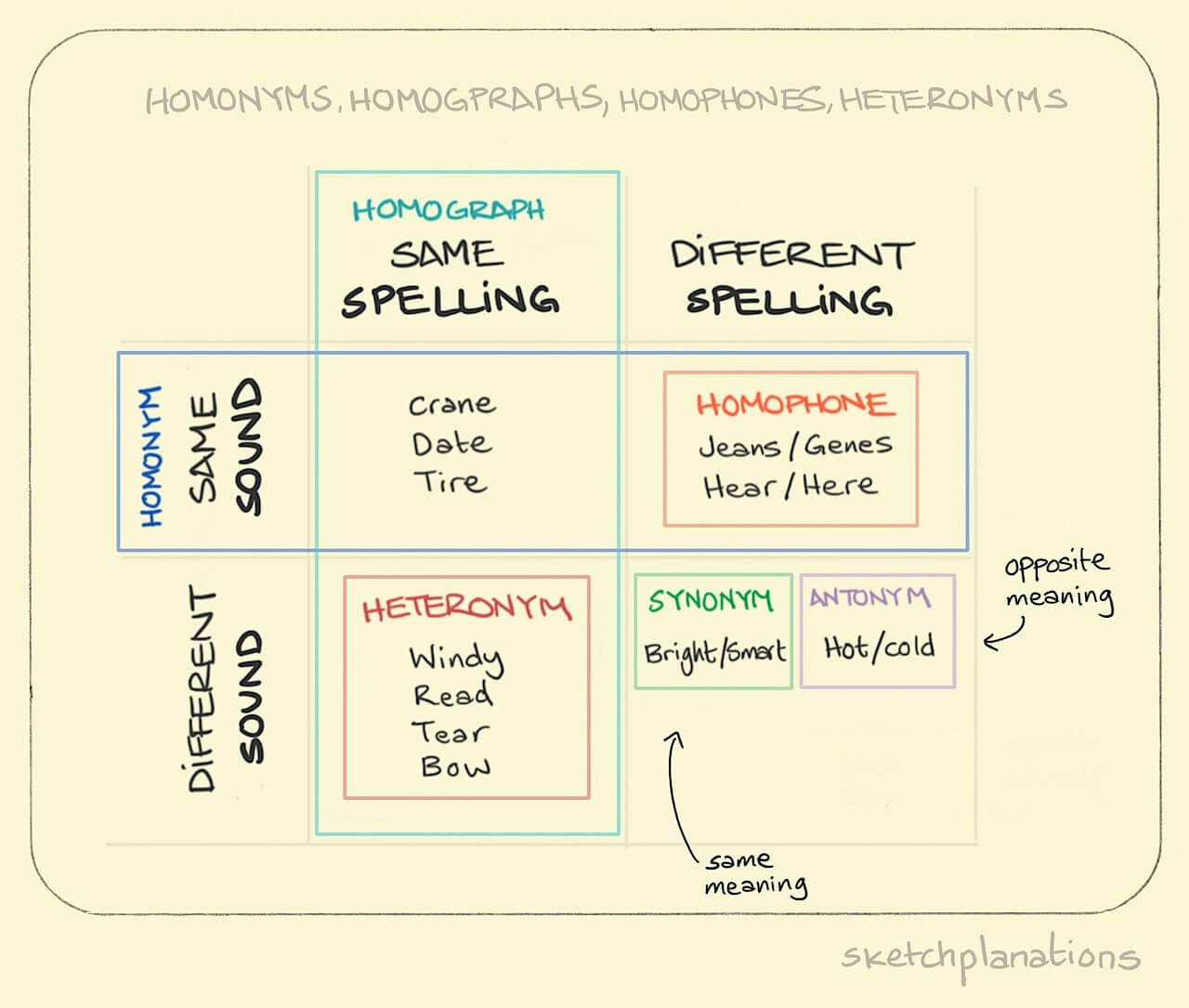Homonyms, homographs, homophones, heteronyms…

- Download
- Copied!
👇 Get new sketches each week
This one rewards a little close attention—looking at each of the words and figuring out their different meanings or sounds.
I’ve always loved heteronyms and how we can have a single word spelt the same and yet pronounced quite differently — like read — and how that clearly makes English a crazy language to learn. And, as you probably do too, I pretty much woke up at night thinking how you could sort words into groups of the same or different spelling and the same or different sounds and begin to make sense of these curious groups of words like homographs, homophones and heteronyms.
Words with different spellings and different sounds generally just mean different words.
There are nice buckets of other words too, like, contranyms — words that can be their own opposite. And also aptronyms (good for nominative determinism).
I did think a third axis of the same or different meaning may give the complete picture but would probably just serve to confuse things.
Some Greek: homo—same, hetero—different, graph—written, phone—sound
Mad props to the incredible poem The Chaos by Gerard Nolst Trenité . The poem gives an amazing number of examples of some of the craziness of the English language. Here's an excerpt from the start:
Dearest creature in creation
Studying English pronunciation,
I will teach you in my verse
Sounds like corpse, corps, horse and worse.
I will keep you, Susy, busy,
Make your head with heat grow dizzy;
Tear in eye, your dress you'll tear;
Queer, fair seer, hear my prayer.
Pray, console your loving poet,
Make my coat look new, dear, sew it!
Just compare heart, hear and heard,
Dies and diet, lord and word.
Sword and sward, retain and Britain
(Mind the latter how it's written).
Made has not the sound of bade,
Say-said, pay-paid, laid but plaid.
Now I surely will not plague you
With such words as vague and ague,
But be careful how you speak,
Say: gush, bush, steak, streak, break, bleak...

